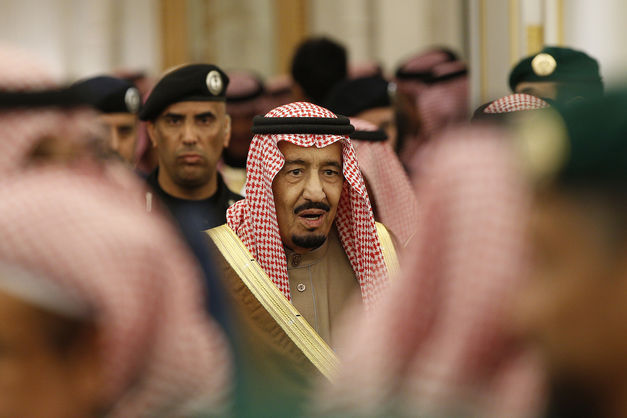Saudi Arabia’s public stance from Iran nuclear deal, in which the Kingdom welcomed the framework agreement, masks private and deep mistrust, Reuters reported on Saturday.
Saudi Arabia’s public stance from Iran nuclear deal, in which the Kingdom welcomed the framework agreement, masks private and deep mistrust, Reuters reported on Saturday.
In a phone call with US President Barack Obama on Thursday, Salman "expressed his hope that a final binding deal would be reached to reinforce the stability and security of the region and the world," the SPA news agency said.
“Saudi Arabia, whose late King Abdullah once urged the United States to "cut off the head of the snake" by attacking Iran's atomic program, has publicly welcomed a framework nuclear deal with Tehran, but in private mistrust remains deep,” Reuters said.
The report added that many Saudis were concerned about the implications of the framework deal that Iran reached with world powers on Thursday, intended to open the way for negotiating a final settlement by mid-year.
"It's about verification. If they don't comply, the boycott will be reimposed. This is a reassuring result," Reuters quoted a Gulf source close to official Saudi thinking as saying.
"Iran may think that as a result of this accord it is on the road to respectability," he said, adding that Riyadh was still worried about Tehran's role in the region.
Riyadh has felt besieged by growing Iranian influence in Arab countries since the U.S. invasion of Iraq that toppled Saddam Hussein in 2003, the report said.
“However, it is also worried that a deal which lifts international pressure, including sanctions, on Iran, will allow the Islamic Republic more space to arm and finance proxies that Riyadh opposes in countries across the region.”
Reuters also quoted analysts as saying that it is not so much an eventual nuclear settlement that is panicking the Gulf state and its Sunni allies, but rather they fear a US-Iran rapprochement will further empower Tehran and encourage it to pursue a more assertive policy in the region.
Saudi media cautiously welcomed the framework deal.
"It seems that Iran's dream to acquire nuclear weapons dissipated in the Swiss city of Lausanne yesterday," wrote the daily al-Watan newspaper, owned by a branch of the ruling family, on Friday.
According to the agency, US embassy cables released by WikiLeaks showed how many top Saudi princes, including the present Crown Prince Muqrin, believe Iran's leaders are bent on regional domination.
"It's not that we expect the West's relationship with Iran will be particularly cozy... It’s more that a lifting of sanctions will help Iran, even if oil prices are weaker, and that this could embolden its behavior," said a Saudi businessman familiar with official thinking.
Top princes have warned that Riyadh will seek the same terms for its own civilian nuclear plans that Tehran gets in its deal with world powers, and have also hinted that if Iran still manages to acquire a nuclear weapon, they will too, Reuters added.
Saudi concerns were raised by how the Lausanne talks were preceded by months of secret negotiations between Iran and the Obama administration in 2013, leaving Riyadh's princes blindsided.